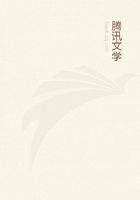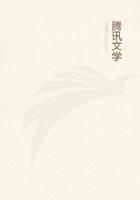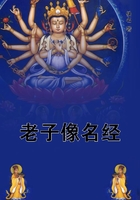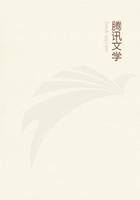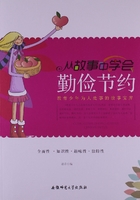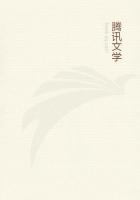And still, after all allowance has been made, it appears that the canons of pecuniary reputability do, directly or indirectly, materially affect our notions of the attributes of divinity, as well as our notions of what are the fit and adequate manner and circumstances of divine communion. It is felt that the divinity must be of a peculiarly serene and leisurely habit of life. And whenever his local habitation is pictured in poetic imagery, for edification or in appeal to the devout fancy, the devout word-painter, as a matter of course, brings out before his auditors' imagination a throne with a profusion of the insignia of opulence and power, and surrounded by a great number of servitors. In the common run of such presentations of the celestial abodes, the office of this corps of servants is a vicarious leisure, their time and efforts being in great measure taken up with an industrially unproductive rehearsal of the meritorious characteristics and exploits of the divinity; while the background of the presentation is filled with the shimmer of the precious metals and of the more expensive varieties of precious stones. It is only in the crasser expressions of devout fancy that this intrusion of pecuniary canons into the devout ideals reaches such an extreme. An extreme case occurs in the devout imagery of the Negro population of the South. Their word-painters are unable to descend to anything cheaper than gold; so that in this case the insistence on pecuniary beauty gives a startling effect in yellow -- such as would be unbearable to a soberer taste. Still, there is probably no cult in which ideals of pecuniary merit have not been called in to supplement the ideals of ceremonial adequacy that guide men's conception of what is right in the matter of sacred apparatus.
Similarly it is felt -- and the sentiment is acted upon -- that the priestly servitors of the divinity should not engage in industrially productive work; that work of any kind -- any employment which is of tangible human use -- must not be carried on in the divine presence, or within the precincts of the sanctuary; that whoever comes into the presence should come cleansed of all profane industrial features in his apparel or person, and should come clad in garments of more than everyday expensiveness; that on holidays set apart in honor of or for communion with the divinity no work that is of human use should be performed by any one. Even the remoter, lay dependents should render a vicarious leisure to the extent of one day in seven.
In all these deliverances of men's uninstructed sense of what is fit and proper in devout observance and in the relations of the divinity, the effectual presence of the canons of pecuniary reputability is obvious enough, whether these canons have had their effect on the devout judgment in this respect immediately or at the second remove.
These canons of reputability have had a similar, but more far-reaching and more specifically determinable, effect upon the popular sense of beauty or serviceability in consumable goods.
The requirements of pecuniary decency have, to a very appreciable extent, influenced the sense of beauty and of utility in articles of use or beauty. Articles are to an extent preferred for use on account of their being conspicuously wasteful; they are felt to be serviceable somewhat in proportion as they are wasteful and ill adapted to their ostensible use.
The utility of articles valued for their beauty depends closely upon the expensiveness of the articles. A homely illustration will bring out this dependence. A hand-wrought silver spoon, of a commercial value of some ten to twenty dollars, is not ordinarily more serviceable -- in the first sense of the word -- than a machine-made spoon of the same material. It may not even be more serviceable than a machine-made spoon of some "base" metal, such as aluminum, the value of which may be no more than some ten to twenty cents. The former of the two utensils is, in fact, commonly a less effective contrivance for its ostensible purpose than the latter. The objection is of course ready to hand that, in taking this view of the matter, one of the chief uses, if not the chief use, of the costlier spoon is ignored; the hand-wrought spoon gratifies our taste, our sense of the beautiful, while that made by machinery out of the base metal has no useful office beyond a brute efficiency. The facts are no doubt as the objection states them, but it will be evident on reJection that the objection is after all more plausible than conclusive. It appears (1) that while the different materials of which the two spoons are made each possesses beauty and serviceability for the purpose for which it is used, the material of the hand-wrought spoon is some one hundred times more valuable than the baser metal, without very greatly excelling the latter in intrinsic beauty of grain or color, and without being in any appreciable degree superior in point of mechanical serviceability; (2) if a close inspection should show that the supposed hand-wrought spoon were in reality only a very clever citation of hand-wrought goods, but an imitation so cleverly wrought as to give the same impression of line and surface to any but a minute examination by a trained eye, the utility of the article, including the gratification which the user derives from its contemplation as an object of beauty, would immediately decline by some eighty or ninety per cent, or even more; (3) if the two spoons are, to a fairly close observer, so nearly identical in appearance that the lighter weight of the spurious article alone betrays it, this identity of form and color will scarcely add to the value of the machine-made spoon, nor appreciably enhance the gratification of the user's "sense of beauty" in contemplating it, so long as the cheaper spoon is not a novelty, ad so long as it can be procured at a nominal cost.


